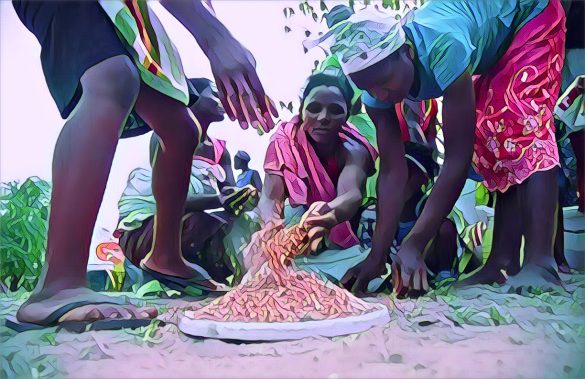The Zimbabwe Vulnerability Assessment Committee (ZimVAC) has released a concerning report indicating that more than 2.7 million rural Zimbabweans are projected to face food insecurity during the peak hunger period from January to March 2024. This stark prediction comes despite government assurances of adequate food stocks to prevent famine.
The World Food Programme’s HungerMap LIVE platform corroborated these fears, showing a significant increase in the number of people facing insufficient food consumption in Zimbabwe. A typical lean season, characterized by diminished food access and high prices, exacerbates the situation for communities already struggling economically.
According to a report by Newsday, Zimbabwe’s economic downturn and changing climate have compounded food security issues, with basic commodity prices soaring. The United States Agency for International Development reported staggering price increases for essential food items, further limiting household purchasing power.
The situation has deteriorated to such an extent that the Zimbabwe National Statistics Agency reported significant increases in both food poverty and total consumption poverty lines last year, underscoring the worsening food crisis.
Human rights advocate Effie Ncube from the National Consumer Rights Association called for an adequate government budget to address this crisis, emphasizing the need for non-partisan food distribution. Development practitioner Nhlanhla Moses Ncube highlighted the dire consequences for marginalised communities, including child malnutrition and increased poverty levels.
Moksesti Basuthu, chairperson of the Kirton Farmers Association, described the challenging conditions for farmers, with failed crops and livestock in poor conditions. He criticized the introduction of new taxes on livestock enterprises as exacerbating the problem.
Vumani Ndlovu, coordinator of Matabeleland North Rural Community Empowerment Trust, urged the government to engage international NGOs for food aid and establish fair and equal food distribution mechanisms in rural districts.
This looming food crisis in Zimbabwe requires urgent and effective responses from both the government and the international community to prevent widespread hunger and economic fallout.


